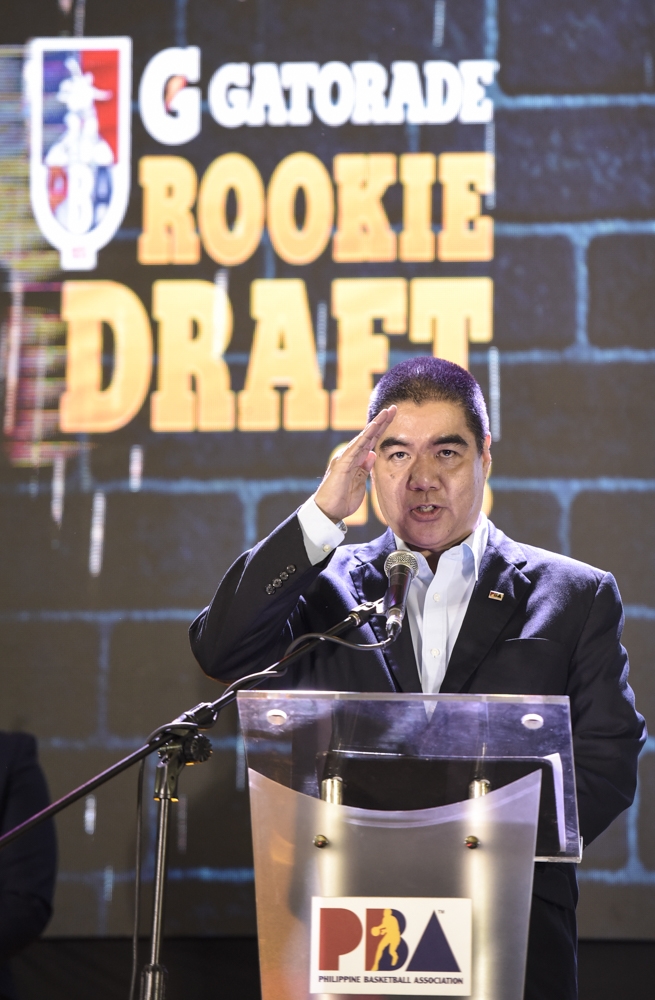
Willie Marcial addresses the crowd during the Rookie Draft. —Sherwin Verdeleon
His voice raspy after battling fever in the 40s due to a viral respiratory infection, Willie Marcial took a deep breath before taking a look back at the year that was.
“It was difficult, very difficult,” said the PBA commissioner in Filipino at the end of his first year at the helm of the pro league. “There were so many challenges.”
“But those challenges also made it rewarding.”
He refuses to officially call it a year just yet, even as the recent Rookie Draft should have technically signaled the start of his second season. There are still a couple of things to sort out before he can focus on his second year as commissioner.
There is the looming trade that would send star big man JP Erram from Blackwater to NLEX, a deal which has been sent back to the teams for revision and will be inspected again next week before it can be approved by the commissioner’s office.
And then there is the growing concern over players going Awol, which have sometimes resulted in trades.
“We’re looking into that already,” Marcial said. “It’s a concern, especially when it seems that players and teams can’t agree on something. But the board is going to put things in place to prevent more of this from happening in the future.”
Among the players who have gone Awol are Calvin Abueva, who was immediately traded by Alaska to Phoenix, and Raymond Almazan, who had a falling out with Rain or Shine management before they sorted out their problems.
Marcial was appointed commissioner of the league and was generally seen as a “healing commissioner” at a time when a divided board looked headed for an impasse that would have affected the opening of last season.
Marcial, who started out with the television outfit that used to cover the PBA, Vintage Sports, worked his way up the league’s ladder before finally landing the top spot.
“That was my advantage the whole year,” he said. “I know almost everybody in the league so when it came to making tough decisions, it was easy to talk to officials.”
That eased the challenges he faced in the first year.
Among them, was the continued perception of dwindling interest in the league, a topic that resurfaces each time a playdate is filled with empty seats.
That, and other problems, will continue to hound the league next year, but Marcial said having a united board would make finding solutions easier.
“Having a united board behind you was a big help. I wouldn’t have made it to the end of the year of not for the PBA board,” he said.
Marcial pointed out that his hardest challenge was—and continues to be—how to improve officiating.
“On one hand, referees are humans. They make and will make mistakes. But on the other hand, the lifeline of the PBA is its fans and fans have to be happy with the way games are called,” Marcial said.
“It’s really difficult but I believe we’ve done our best to find ways to improve officiating,” he added. “And we will never stop improving.”

